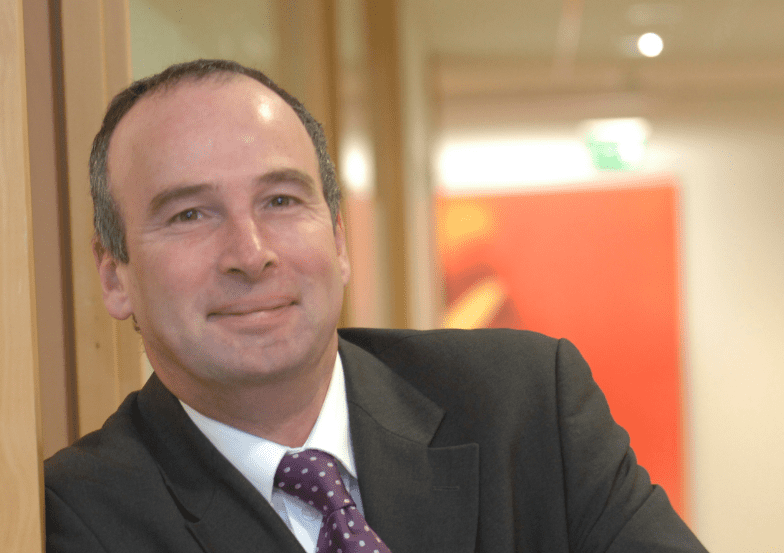
Working Life: Mike Crooks, UK general manager, Astellas
pharmafile | March 22, 2012 | Feature | Business Services, Manufacturing and Production, Medical Communications, Research and Development, Sales and Marketing | Astellas Pharma, Mike Crooks, Working Life
Mike Crooks became general manager of Astellas Pharma in December 2011. He joined Astellas in 2007 as marketing director, becoming sales and marketing director (specialist brands) in 2010.
This followed ten years in senior sales and marketing roles at Novo Nordisk and at Zeneca. The first half of his career was spent at CIBA-GEIGY, subsequently Novartis.
Starting as a sales representative in 1981, he rose to become sales and marketing director and finally a business team head.
Mike Crooks holds a BSc in Zoology from the University of Newcastle-upon-Tyne and an MBA from Henley Management College.
How did you find your way into your current role?
It has always been important for me to work for well-respected companies with strong ethics, and Astellas is built around core values that I can relate to: success, but success that is achieved in the right way; teamwork, with nobody working alone; adaptability, which is so important in our industry, where change is a constant, and respect – which is earned at Astellas by delivering on your promises.
Those are business principles I believe in and they have guided me through my career. I’ve also discovered that Astellas offers an environment where people are free to do things a little differently and where you can enjoy your work – after all, it takes up a large proportion of your life!
I came to Astellas UK in 2007 as marketing director, becoming sales and marketing director (specialist brands) in 2010 and being appointed general manager at the end of 2011.
Before Astellas, I’d spent eight years at Novo Nordisk and two at Zeneca. My career began in 1981 as a sales rep with CIBA-GEIGY, which merged with Sandoz to form Novartis in 1996. I spent a total of 16 years there in sales and marketing roles, finally heading up a business team.
Another of Astellas’ attractions for me was its diverse portfolio across therapy areas in primary and secondary care and its impressive product pipeline. When I joined, the UK management team was relatively new with the general manager, sales director and me as marketing director all being recent appointments. But within two years, we were named Company of the Year in our category at a major industry awards for effectiveness in pharmaceutical marketing.
It has also been encouraging to see from a recent employee survey that well over 90% of our staff are proud to work for Astellas.
How is your field changing?
The pharmaceutical industry has always been driven by innovation, but the cycle of change has become shorter. Essentially, if you stand still, you’re going backwards. We are seeing the NHS, our single main customer, undergoing radical change in its efforts to achieve sustainability by saving £20 billion – so we have to adapt as fast as the NHS changes. Different customers are emerging among stakeholders in the NHS, and there is a need for a different approach as we redefine our business model.
It used to be a matter of conducting clinical trials, gaining registration and promoting a product on a platform of efficacy and safety, but that’s no longer enough. The clinicians in the NHS are now being challenged with financial issues as payors are concerned about value, how a medicine saves costs by replacing other therapies, effects patient outcomes and for example, reduces hospital admissions.
In order to work effectively with our healthcare partners in convincing the people who hold the purse-strings, we need to produce relevant evidence from an early stage of product development. There are multiple layers to that evidence. For Astellas, which offers a number of therapies for patients with chronic conditions, it is often a matter of highlighting the value of our medicines and the possible savings achievable in the long- term. The size of the company is a decisive factor: we are big enough to make a difference, but small and agile enough to be able to take decisions quickly.
Internally, if a project proposal is supported by convincing and robust arguments, it does not have to go through multiple levels of management to gain approval. That policy allows us to push for initiatives that might take the company in a new and slightly different direction. If an initiative turns out to be the success you hoped for, that is something to celebrate, and if it doesn’t turn out quite as expected, you will have gained some learning that you can apply in the future.
What are the most enjoyable things about your role?
The best thing is that I feel I can make a difference in my role. What springs to mind is an initiative we undertook in the field of transplantation. We are a leader in the area of anti-rejection drugs, which ultimately saves patients from the devastating outcome of losing an organ that might well have been donated by a close relative. We discovered that patients were being put at risk by prescribing and dispensing errors occurring in primary care – away from specialist hospital transplant units – as a result of generic prescriptions.
Some prescribers were unaware of different formulations of the same drug, and it was clear that we needed to protect patients by encouraging branded prescription, which was running at just 3% when we launched the campaign in 2009. We engaged with the full range of stakeholders – patients, hospitals, healthcare professionals, government – and after two years, the MHRA guidelines were amended, and we achieved a branded prescribing level of 68%.
Of course, that means that 32% of prescriptions could still be putting patients at risk, but we are still working hard to continue making a difference. Over the coming years we are looking forward to making a difference for cancer patients with our move into oncology.
And the least enjoyable?
No need for any thought on that one – driving round the M25!
What are the most common misconceptions about your field and the people in it?
As an industry, we sometimes need to remind the world that we’re not here to make money out of sick people. The fact is that we have the same objective as every doctor, nurse and pharmacist in the country – and that is to make people well. We’re here to be partners to healthcare professionals, providing them with the tools of their trade, so to speak, and I think it is worth making clear that, these days, everyone in the pharma industry is sensitive to the right way of doing business.
Yes, we are a business, but the revenue we generate gives us the resources to invest significantly in R&D: that’s how we create innovative drugs that will enhance the lives of tomorrow’s patients.
Is there someone in your field who has inspired you?
There’s no single person I would name as an inspiration – there are many. I’ve tried to take the best from the people I’ve worked with in my time at a number of successful companies. Starting off as a sales rep, I learned a great deal about observing and interpreting people, while marketing is all about making best use of different channels of communication.
I have also worked with some inspirational leaders in our industry – and have learned from each of them. The best way of achieving your objectives is to collaborate constructively with all your internal and external stakeholders – and that can include your supposed competitors. For instance, I have been worked on several disease initiatives with other companies for the overall benefit of the patients.
Similarly, is there someone (or something) outside your field who has been a source of inspiration for you?
People who inspire me are those who don’t necessarily follow the crowd, but make the effort to work it out for themselves. This might sound incongruous, but Clint Eastwood springs to mind as a source of inspiration. Yes, he started off as a tough-guy actor in spaghetti westerns, but he is now a respected director of profound and insightful movies. We encourage the right spirit at Astellas by involving people in decision-making, even if it takes them out of their comfort zone, and by supplying rationales and information to help them make their own decisions.
What is the secret to a happy working life?
Be successful by having a great team around you and enjoying what you’re doing. Set clear objectives, commercial or otherwise, and gain respect by meeting them.
In 2009-10, Astellas UK set itself a target of £100m turnover. We ended up achieving £114m, but the real challenge lay in encouraging people to change behaviour and to take leadership – that’s what made the difference and will continue to do so for the future.
If you had advice for anyone starting out in your field now, what would it be?
Believe in yourself and make it happen for yourself. Above all, be prepared for change, and see change as an opportunity, not as a threat.
Related Content

Astellas and Kelonia Therapeutics enter agreement for development of immuno-oncology therapeutics
Astellas Pharma and Kelonia Therapeutics have announced that Xyphos Biosciences (a wholly owned subsidiary of …

Astellas Pharma to acquire Propella Therapeutics for $175m
Astellas Pharma and Propella Therapeutics have announced that Astellas and Propella have entered a merger …

Astellas plans to invest over €330m in new facility in Ireland
Astellas Pharma has announced that it is preparing to submit a planning application to build …








